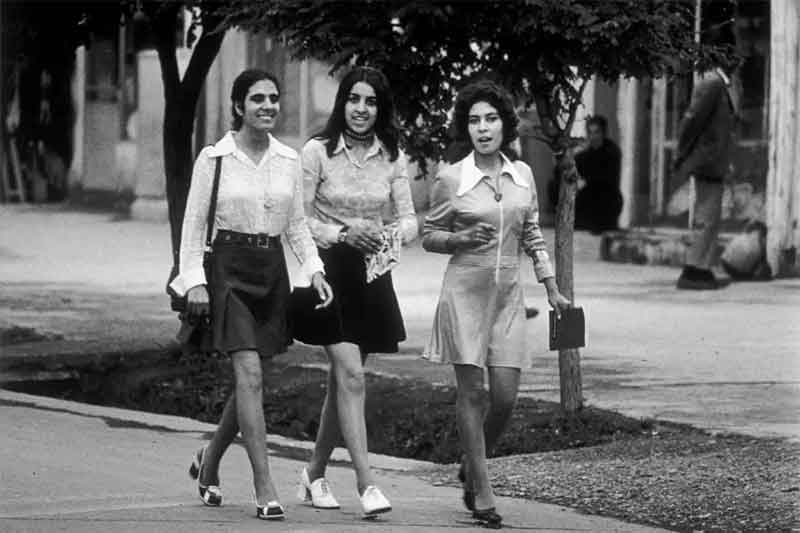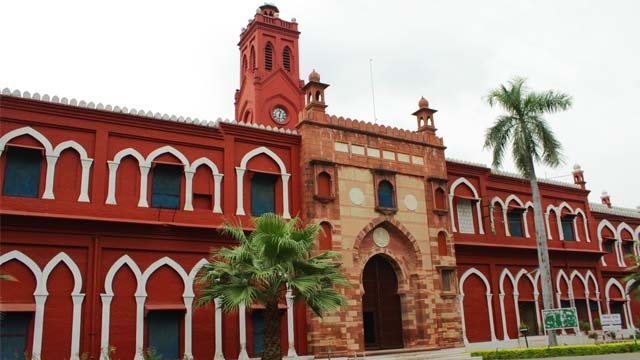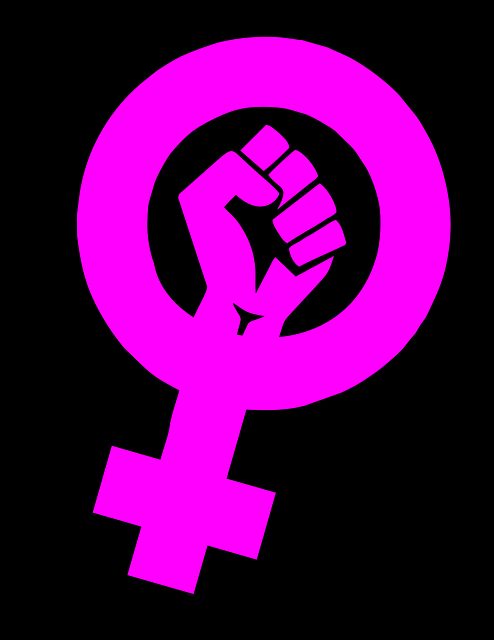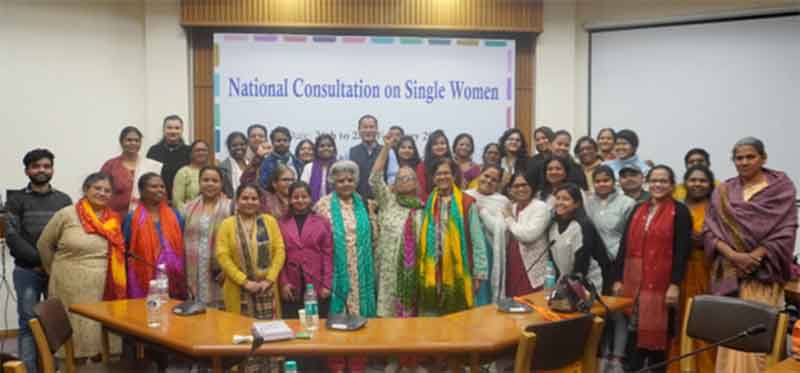To Indian ladies above 15: ‘Think before you marry’ – By section 375 exception 2 of IPC
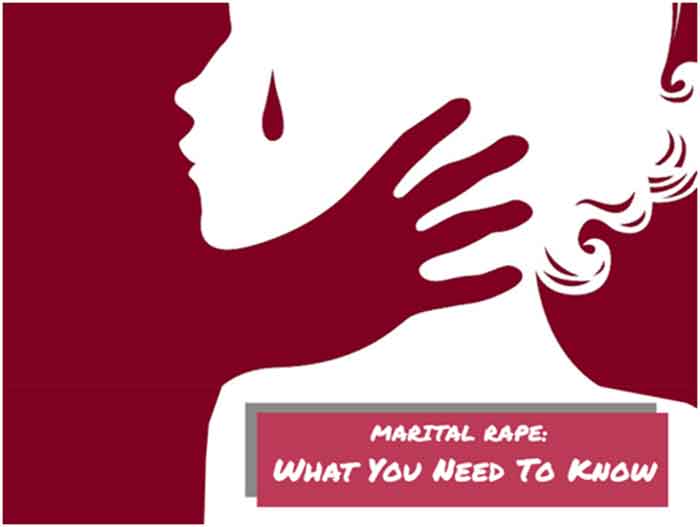
When I searched for the status of marital rape in India, the first link that popped up had content that was both bizarre as well as mind wobbling – ‘It says Section 375 of IPC considers the forced sex in marriages as a crime only when the wife is below age 15’. It raises two questions. First, for the minor wives aged between 16 – 18, our law allows them to be married as well as raped post the license-cum-rituals. Second, the law considers adult married women as their husbands’ properties.
It is a common notion in our country that juveniles are treated differently (read: leniently) in matters involving crime. They are considered to not have attained the level of maturity required for an individual to make an informed decision. True. With age and proper guidance, human beings do exhibit emotional growth and stability in thought process. Then going by this logic where there are laws to protect the interests of minors (here accused), shouldn’t there be even stricter laws for the minor victims?
Well known activist Mrs Madhu Garg, Joint Secretary of AIDWA says a vehement yes. We, a group of 3 PGP students at IIMA, spoke to her at length about this and other issues grappling the interests of women especially those of minority and weaker sections. She has been fighting for such causes since a couple of decades and draws inspiration from her husband, an ex-JNU pass out. Mrs Garg has been actively involved in getting oppressed women fair trial and justice. In one such case related to dishonest religion conversion and domestic violence, she and the organization had helped two Muslim women in Lucknow get their cases registered with the police and thereafter, arrest of the accused.
Recently, she had staged a protest, from 25th November till December 10th of this year, with her colleagues against false portrayal of voluntary religion conversion post marriage as a dishonest and forced one. This was following a series of false claims made by the Bajrang Dal of Hindu women being forcefully married to Muslim men. She strongly opposes this attack on secular fabric. The anti-conversion law Bill was passed on the day before she started the protest.
Since times immemorial, it has been observed that whenever there has been a new ushering, obstacles have paved the way before it took the shape of a movement. Mrs Madhu, also the state president of AIDWA, says she and her colleagues have faced repeated threats while helping the victims. These threats had been from the accused owing to their network and money (in most cases) and also from the victim’s families out of fear of being ostracized from the society. But where there is a will, there is a way.
The organization supporters’ relentless efforts bore fruits in their 11 year-long battle in the ‘Ashiana rape case’ of 2005. The accused in this case, Gaurav Shukla (nephew of a then Samajwadi Party leader), along with his 5 other friends had put in all their might to escape the law by forging documents to portray themselves as juveniles. They were influential but spoilt people who took lack of stronger laws as an excuse to exploit the underprivileged. While the exploiters were busy in filing petitions against the complaint and were roaming freely on bai, the victim had to stay keeping her identity a secret, making more than 35 court appearances, continuing her education, and facing the society wrath. However, it was her own grit and willpower coupled with the support of organizations like AIDWA that the crime perpetrators were finally convicted in 2016.
Mrs Madhu says that in most cases the victims themselves have displayed surprising quantum of willpower and courage that it acts as amotivation for her to continue fighting the battle. In the above case, she had to run from pillar to post to get the documents, collect proofs that Gaurav Shukla was not a minor at the time of crime, stage collective protests and put pressure on the judicial system of the country to get the justice delivery process expedited.
When asked about her opinion about whether there has been transformation of the society with regards to its sensitivity towards women, she sighs and says the opposite has been true. She says the society has regressed in terms of secularism. There has been sharp rise in instances of communal disharmony, the society seems divided and the poor and underprivileged women who falls at the bottom of the pyramid. She blames the apathetic stance of the current government for spreading this hatred.
The past few years have witnessed considerable improvements in the legal thread of the country in the form of more stringent laws as regards to safety of women. Then why law against marital rape is still lying in the ‘Not yet started’ domain? India, one of only 36 countries where marital rape has not been penalised yet, should take cognizance of its erstwhile rulers in UK. In a landmark judgement in R v. R, UK, the Court convicted a man for raping his wife and stated that ‘for a person to be penalised for rape the relationship between parties is immaterial’.
Apart from moral grounds, the lack of law against marital rape itself presents 2 existing laws in contradiction of each other. The Protection of Women from Domestic Violence Act, 2005 includes the words ‘any conduct of a sexual nature that abuses, humiliates, degrades or otherwise violates the dignity of woman’ in its definition of domestic violence. In the contrary, Section 375 exception 2 exempts the act of rape by a man against a woman if the former happens to be her husband. This law indirectly takes away the right to privacy, sanctity of female and to make choices relating to sexual activity, from a girl post her marriage.
Experts had argued that criminalizing this offence would entail a suit of false claims by females against their husbands to extort gains. However, the fear of misuse of loopholes in a hole is not a sufficient ground to allow injustice and oppression to the real victims who are not miniscule in number in a country like ours with arranged marriages still a common practice. It is almost as if the laws of the land are warning a girl from getting married, that if you get raped now, we will punish the culprit, but if the same happens post marriage by your husband, we are sorry. Plus, the lawmakers have never denied of the crime’s existence. Then I do not understand what is stopping them to make use of their authority and more so, responsibility in making our nation a safer haven for women.
Anjali Agarwal is a second year PGP student at IIM Ahmedabad
SIGN UP FOR COUNTERCURRENTS DAILY NEWSLETTER

